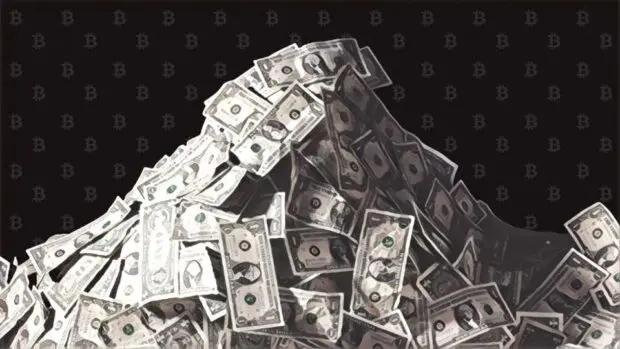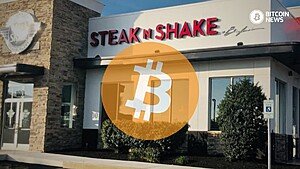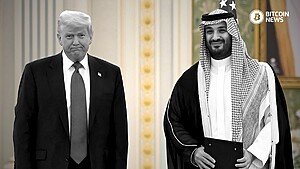The World Trade Organization’s (WTO) “Great Reset” program proposes creating a new social contract that respects the dignity of all people and does not include private property ownership. To quote WTO,
You’ll own nothing, and you’ll be happy.
World Trade Organization
Surprisingly, it won’t be that everyone (governments, corporate organizations, 1%, etc.) will own nothing; rather, it will be that you will own nothing. One approach to do this is to eliminate currency, resulting in a cashless society by 2030.
Money
Every time you use your credit card, the bank knows you made a transaction – dubbed “big brother money” since it lacks privacy and is easily tracked by central authorities. Furthermore, as history has proven, it is far easier to spend more and get into debt.
Due to allegations such as these, society is gradually phasing out physical cash,
- disease transmission, i.e. filthy (you won’t even pick up spare change),
- utilized for unlawful reasons (terrorism, drug trade, etc.), and
- used to get around paying taxes, etc.
However, we frequently overlook cash’s other characteristics:
- neutrality
- privacy
- security
The reasons against currency are valid, but they aren’t new. They have, however, become increasingly visible, particularly in light of recent reports that COVID-19 could be spread via currency. According to the WTO effort, by 2030, the world will be cashless, and the epidemic has accelerated the shift toward a cashless society in ways that no previous single event has. Winston Churchill famously said,
Never let a crisis go to waste.
Winston Churchill
Neutrality
Money’s neutrality demands that it can be utilized for both good and harmful purposes. Money should be unaffected by censorship, regardless of your beliefs, religion, political opinions, or public speech. Money should be permission-less, which means that everyone can join and engage in its activities. That should not be taken away from you by any governing entity.
The freedom of money is enabled by the censorship-resistant and permission-less qualities of cash, regardless of whether something you did was bad or what the current system declares is bad.
In part, the internet is revolutionary because it eliminates the costs of “permissioning.” The internet’s fundamental protocols are open technical standards that can be utilized by anybody. Consider permission-less systems to be human languages: anyone can learn them, and once you do, you can write and share anything in that language. You never need to ask the Institut Français or the Agenzia Italiana for authorization. No one has the authority to prevent you from learning and utilizing a language.
Money’s for you and your enemies.
Privacy
Cash’s anonymity ensures that only you have authority over your funds. You can use your money to leave the country if the government doesn’t like you. If you want to live off the grid and don’t want your bank to know about your personal life, you should be able to do so.
Security
Money security implies that the government cannot deny you access to your funds, close your account, or force you to pay taxes, interest rates, fees, or other charges unless you first acknowledge them. I know exactly what you’re going to say,
I don’t engage in any criminal activities. What am I afraid of?
Every day, new laws are enacted. Nothing prevents private institutions and government authorities from combing through your records and creating something if they decide to harm you in the near future. Although you may believe that the current government is benign, there is no assurance that it will remain so in the future.
The three primary reasons why governments want to get rid of cash — to establish a cashless society — are neutrality, privacy, and security.
Cash is virtually untraceable, generally acknowledged, and trustworthy.
Future
You’d be mistaken if you thought these threats of a cashless future were just a fantasy. The so-called CBDC (Central Bank Digital Currency), allows the government to have complete control over your money. CBDC has been gradually pushed out in nations such as China, which has already begun to adopt digital yuan (E-CNY), or Nigeria, where eNaira was officially launched a few months ago. In more autocratic and totalitarian countries, the move to a cashless society is moving more faster. CBDC – spy-coins — having the unique ability to allow governments,
To make use of your behavior and, as a result, to direct the use of your money.
When the government tightly controls the money, as it does through CBDC, there’s really nothing you can do without the government knowing, and they can do anything at the same time.
When we think about how the disappearance of currency – the transition to a cashless society — may look, we can envisage something like this:
- when you want to buy bread, the price in cash is $2, compared to paying $1 in CBDC
- withdrawing cash from ATMs or banks is much more expensive, or the option is completely eliminated
- interest rates on loans in cash much higher compared to CBDC loans
- various social and financial benefits if you use CBDC, including taxes, fees, expenses, and so on.
- illegal to hold $2,500 in cash, etc.
Proof
It is not difficult to uncover real-life examples of governments seizing control of their citizens’ money. Executive Order 6102, issued in 1933, declared private ownership of gold currency, gold bullion, and gold certificates within the United States to be practically unlawful, effectively confiscating gold from its residents. Following the September 11 attacks in the United States, the Bank Secrecy Act (BSA) was enacted, with one of the mandatory actions for financial institutions being to report transactions exceeding $10,000 and to keep records of cash purchases, demonstrating the government’s ability to track your money.
In Europe, developing countries (Greece, Cyprus, etc.) have previously intended to raid individuals’ bank accounts in order to prevent the financial system from collapsing. This was also accomplished in Cyprus, where people were seen queuing at cash ATMs during the bailout of financial institutions. When it comes to developed countries (e.g., Sweden, the Netherlands, France, and others), they are well ahead of the curve in terms of attaining a cashless society, with reports indicating that cashless consumer transactions account for more than 59 percent of all transactions.
Bitcoin Fixes This
The European Central Bank (ECB) announced an inquiry phase of the digital euro initiative in July of last year, with Christine Lagarde, the ECB’s president, saying,
In the digital age, people and firms should continue to have access to the safest form of money — central bank money.
Christine Lagarde
To begin with, central bank money (physical or digital) is by far the worst type of money because it loses its value over time owing to devaluation. In a 60 Minutes interview, Neel Kashkari said,
There is an infinite amount of cash in the Federal Reserve. We will do whatever we need to do to make sure there’s enough cash in the banking system.
Neel Kashkari
Second, as previously said, the core issue with CBDC is that we are entrusting control and the future of our money to people and organizations over whom we have no authority. Governments, business organizations, and other controlling agencies will be at our mercy. Surprisingly, society is already relinquishing control over money owing to everyday convenience. It will be incredibly difficult to get rid of a CBDC once it has been established by a government, while politicians (e.g., Barack Obama) will continue to defend their dominant policies as a trade-off between security and privacy.
“It’s important to recognize that you can’t have 100 percent security and also have 100 percent privacy and zero inconvenience.”
Barack Obama
To which an adequate response would be,
He who sacrifices freedom for security deserves neither.
Benjamin Franklin
As a result, Bitcoin resolves this as a kind of money that is transparent, impartial, censorship-resistant, permission-less, and has a predetermined monetary policy.










